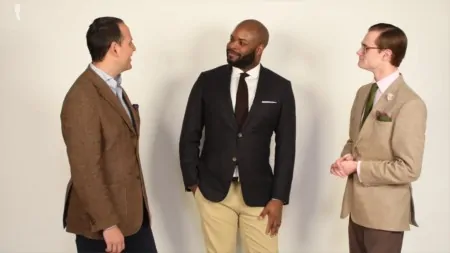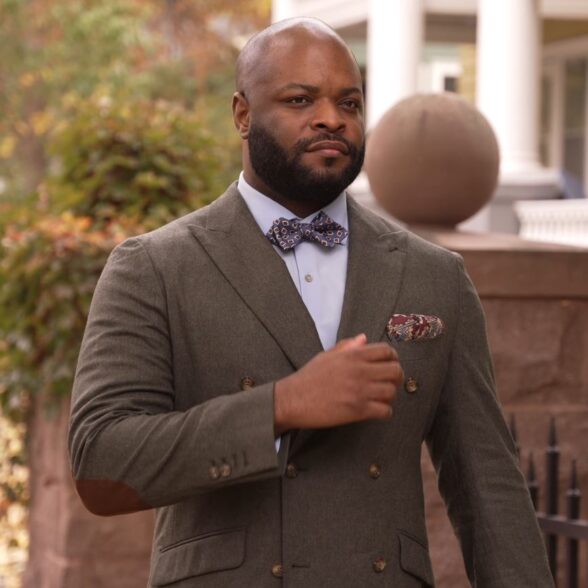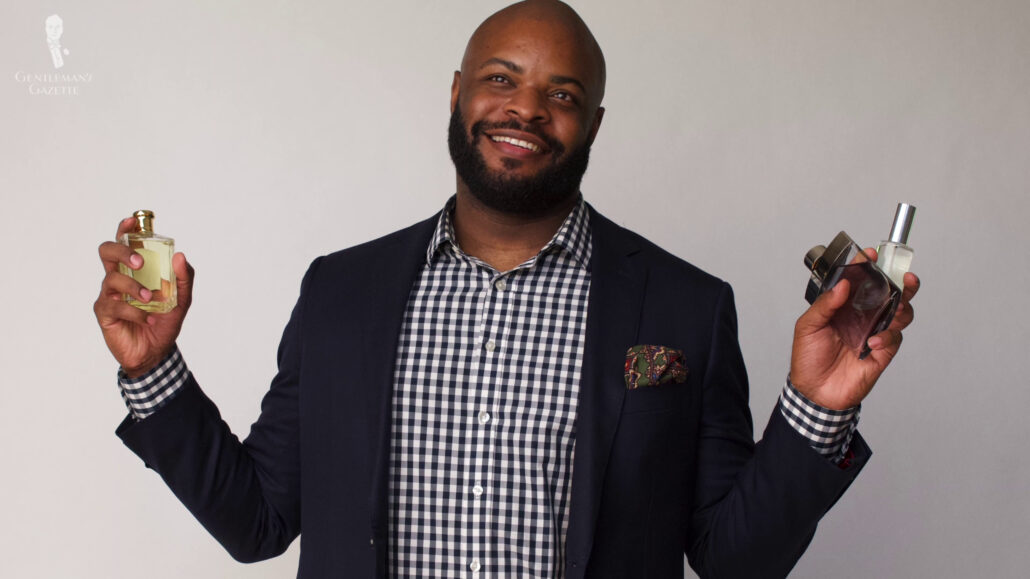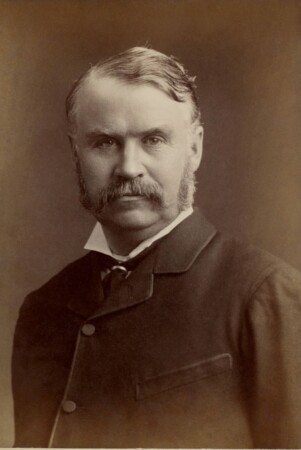Asking the Right Questions Allows You to Get to Know Anyone
Getting to know someone can be intimidating, but it is worth the difficulty because it is how we build and strengthen relationships. What steps can you take to make this vital undertaking not only more successful but also more pleasant for you and your interlocutor?
- Asking the Right Questions Allows You to Get to Know Anyone
- The Difference Between “Small Talk” and “Conversation”
- Good Questions Drive Good Conversations
- Questions Encourage Introspective Consideration
- DO’s and DON’Ts When Getting to Know Somone
- How to Get to Know Someone through Questions FAQ
- Easy and Fun Conversation-Starting Questions
- Deeper Questions for Gaining Deeper Insight
- Conclusion
Being aware of social cues like your body language or eye contact is very important, but of greater impact are the ways that you help to guide the conservation. Insightful and engaging questions are one of the easiest ways to get a conversation going that keeps everyone feeling involved and helps to progress not only the dialogue but also the relationship.
“The art of conversation is the art of hearing as well as of being heard”
William Hazlitt
The first moments in a conversation will form an impression that may or may not be to your advantage in the long run. The fact of the matter is your skills in getting to know people successfully will directly affect the outcomes of job interviews, dates, important client meetings, and many other aspects of your life.
That’s why, in this guide, we are sharing over 50 questions that will help you guide and develop conversations so that everyone feels comfortable, involved, and included.
Learn the Art of Charm!
The Difference Between “Small Talk” and “Conversation”


For the purposes of this guide, it is helpful to distinguish between “small talk” and “conversation” with the following general definitions:
Small Talk: Informal discourse about low-intensity, relatively unimportant topics that is inoffensive but also lacks depth and insight.
Conversation: Interactive communication between two or more people, often on substantive and stimulating topics.
Oftentimes, small talk is helpful when you won’t be speaking for very long or when you are first getting to know a stranger. Idle banter, however, quickly becomes boring, and it is unlikely that a conversation can persist for very long, powered only by lukewarm platitudes and sentiments.
“The meaning doesn’t matter if it’s only idle chatter of the transcendental kind”
W.S. Gilbert
The best conversations are like a river – they flow along, even if there are a few bumps and turns along the way. It takes some practice and finesse to drive a balanced conversation that moves along naturally, and having some good questions tucked in your back pocket can help you navigate slow spots and push past mere small talk.
After all, small talk, while necessary in many situations, won’t help you get to know someone. And then, when you see them again, there isn’t a good place to pick up where you left off!
Avoid these 10 mistakes in your conversations!
Good Questions Drive Good Conversations

In this guide, we will share 53 great questions to ask to get to know someone. Asking questions helps show your conversation partner that you are interested in them as a person. They are designed to help draw out and introduce meaningful, rather than superficial, conversation topics that you can both converse on without forcing participation.
“Ah, good conversation – there’s nothing like it, is there? The air of ideas is the only air worth breathing”
Edith Wharton
These questions should work just as well for an introvert or an extrovert, and they are much deeper than simply “When is your birthday?” or “What is your favorite thing to do on weekends?” They also steer away from topics that could become too intense, like career advice or romance questions that are better left to a relationship expert.
Master the Art of Conversation!
Questions Encourage Introspective Consideration

Many of these questions are deceptively revelatory, such as “who or where would you haunt if you were a ghost?” It may seem like harmless fun, but this question might reveal if your conversation partner has a sentimental or a vengeful streak, for example. The best part is that asking just one of these questions can open and carry an interesting conversation that will leave you far better acquainted with a new contact than everyday small talk.
DO’s and DON’Ts When Getting to Know Somone

DO be honest and open.
The key to excellent conversation is to be yourself while getting to genuinely know the other person. Avoid putting on airs or affected behavior and don’t try to artificially heighten how you speak or the topics on which you discourse: just be yourself!

DON’T be afraid of vulnerability.
If you are unwilling to open up and show a little vulnerability, a conversation can feel stilted, superficial, or fake. You also have to give a little to get some in return, and quality getting-to-know-you questions almost always depend on a certain degree of vulnerability on your part.

DO ease into deeper questions.
Begin with the “Starter” questions below to get the conversation flowing, and then use the “Deeper” questions to transition between small talk and real conversation. Ask about the best concert someone attended or their first school dance before moving on to a celebrity crush or first crush.

DON'T pursue questions that are obviously upsetting.
As you run down your list of questions, you may see that some topics promote a negative reaction. Remember these topics and avoid them – do not prod because it will likely discomfort or upset the other person.

DO understand the context of your conversation.
Interview questions or questions that are appropriate for a professional setting can seem too aggressive on a date, while asking about a first job doesn’t make much sense if you’re talking to young children.

DON'T be inappropriate.
Even if meant in jest, certain questions are simply not acceptable at certain events. Light-hearted questions don’t belong at a funeral and don’t spoil the mood at a festive party with morose inquiries about someone’s biggest regret.

DO give the other person some time to warm up.
Many people feel uncomfortable talking with a new person in the beginning, so it’s best to give them some time to relax and fall into more natural conversation patterns.

DON’T beat a dead horse.
If your conversation “partner” isn’t pulling their weight in the conversation, assess the situation and determine if you need to continue it.

DO make the best of a bad situation.
If you find yourself in a situation where you need to keep speaking with a lukewarm conversationalist, such as if you are seated next to your narcissistic boss at a business dinner or you need to entertain a client, keep asking questions. It might be awkward, but at least there will be something to discuss.

DON'T pester anyone.
If the other party has made it clear that they are not interested in speaking, you can politely excuse yourself without feeling bad. It is entirely possible that they simply aren’t feeling very talkative at that moment.

DO listen carefully to the responses you receive from your questions.
Use follow-up questions and prompts to dig deeper once you’ve reached a topic that you both seem to find interesting, like “Really? Why is that?” and “How did that make you feel?” Engagement with what someone is saying is one of the best compliments you can give.

DON'T rely exclusively on these questions.
You’re supposed to be substantively engaging with different ideas, not playing trivial pursuit.

DO use them to change subjects.
If things get awkward or a conversation has fizzled out, a properly-deployed question can prevent further issues and revive the dialogue.

DON’T forget to think through your own answers to these questions.
The expectation of conversation is usually that you would be willing to answer a question in return. Don’t ask about a favorite season, favorite food, or the best vacation destination without having your own answer in mind first.

DO be prepared for unexpected answers.
As you go through these questions, be prepared for unexpected answers to questions about a guilty pleasure or past relationships. After all, they are intended to help you get to know someone, and you don’t really know them yet!

DON’T ask judgmental questions.
In this case, we mean questions that people might not want to answer for the fear of being judged, such as “Are you a messy or a clean person?” or “Do you spank your kids?” Doing so can stifle the conversation because they will be more closed-off if they feel they have to choose between lying and being judged.

DO develop your own questions.
Based on your experiences, interests, and social set, we know that you can come up with great questions that will make this list even longer!

DON'T ask cliched questions.
Many so-called conversation starters are actually conversation-enders because they are too open-ended, like “What is the meaning of life?” or too hackneyed, like “What are your biggest pet peeves?” Instead, ask genuinely engaging questions that you yourself would enjoy answering.

Keep in mind the
Culture
Generally speaking, in addition to your relationship with the person with whom you are speaking, there are also understood conversational norms that vary from culture to culture. Some cultures, like those of Brazil or Italy, are very open and eager to share even personal information. Others, like England or Japan, might be more reserved and take offense at deeply personal questions early in the conversation. Try to keep these norms in mind when asking questions, and when in doubt, stick to more general topics rather than risk offending with overly intimate queries.

How to Get to Know Someone through Questions FAQ
What is the difference between small talk and a conversation?
Small talk is essentially chatter about everyday, simple observations that help you and your interlocutor get to know each other. It’s easy and simple, but not very interesting. Conversation occurs when both parties are able to share more stimulating opinions and perspectives that require more engagement but are also more enlightening and enlivening.
How do questions help you get to know someone better?
Few people genuinely enjoy talking about themselves. Questions allow us to share our personalities, experiences, and opinions in a casual way that isn’t overwhelming but does allow for fun, engaged exchanges.
What kinds of questions are good for starting a conversation?
Creative, unexpected questions that are not deeply personal are the best way to open a conversation. They are interesting and fun but don’t require oversharing or excessive introspection.
When is it time to transition to deeper questions?
If you notice that a smattering of idle, small-talk topics are no longer engaging, it is usually time to switch to deeper questions that are more likely to stimulate deeper, more insightful, and longer-lasting conversations.
How do I save a dying conversation?
When a conversation starts flagging or becoming awkward, it is usually time to deploy a new question that will reset the dialogue. Questions like these should be similar to those you employ when first starting a conversation.
Easy and Fun Conversation-Starting Questions
Start With Low-Intensity Questions When First Getting to Know Someone

Questions at the beginning of a conversation with a person you don’t know should be neutral and relatively easy to answer so that you can establish a basic level of comfort with one another. They often play off of typically light starter conversation topics such as work, family, entertainment, or personal interests, which make for an ideal transition into deeper questions later on once you know the person better.
“Just so hollow and ineffectual, for the most part, is our ordinary conversation. Surface meets surface. When our life ceases to be inward and private, conversation degenerates into mere gossip.”
Henry David Thoreau
You can also ask fun questions that don’t go too deep but simply help to put your conversation partner at ease. If you are humorous in general, a funny icebreaker can work quite well too. The key is to be approachable and genuine, but also cognizant of the fact that both you and your interlocutor are not yet on intimate terms.

What do you do when NOT working?
Raphael
“I love to play racquetball, and I do so weekly. As a kid, I used to play soccer, basketball, and table-tennis, but I just watch it occasionally on TV, I don’t play them anymore. I also love board games, especially Settlers of Catan – I even have almost all of the extensions! I also enjoy many different kinds of music, but my number one favorite would probably be classical music.”
The Questions
- What do you do when you’re not working?
- Did you choose your profession, or did it choose you?
- What would you do if you won the lottery?
- What is your favorite way to relax?
- What is your favorite book to read, or, what is your favorite song or favorite movie?

Some of our favorite
Books
As Classic Style devotees, it should come as no surprise that many of our favorite books relate to menswear. Some particular favorites? Dressing the Man by Alan Flusser and I Am Dandy by Nathaniel Adams. Of course, Raphael also loves any book about fast cars, while Preston has an expanding collection of both comic books and comic book collections.
- What makes you laugh the most?
- What is your favorite holiday?
- What was the last book you read/movie you saw?
- What is one thing you’re glad you tried but would never do again?
- When people come to you for help, what do they usually want help with?
- Who’s your go-to band or artist when you can’t decide on something to listen to?

What is your favorite music genre?
Kyle
“It depends on my mood and what I’m trying to do. If I’m at the gym or if I’m cleaning at home or things like that, I want something more upbeat that I can kind of have some energy that will keep me going, so I really like EDM, things that are much more fast-paced so if I’m working out I enjoy that. If I want something a little bit more mellow, I’ll listen to maybe something that’s instrumental but growing up we listen to a lot of gospel, a lot of powerful vocals so I have a pretty wide range of interest when it comes to music, but I would say, usually I find myself constantly listening to something more into the pop and EDM sound.”
- What’s something you like to do the old-fashioned way?
- What is something you have only recently formed an opinion about?
- What are you interested in that most people haven’t heard of?
- What is something you think everyone should do at least once in their lives?
- What is something that people are obsessed with but you just don’t get the point of?
- Where is the most interesting place you’ve been?
- What are your favorite TV shows?
Some of our favorite
TV Shows
In many ways, we’re in the midst of a Golden Age of Classic Style on modern television. From period pieces like Downton Abbey to gangster shows like Boardwalk Empire or Peaky Blinders, you’ll have plenty of vintage style inspiration, while more modern shows like Frasier and Hannibal make it clear that dressing well hasn’t totally disappeared from the “little screen.”
- What is the luckiest thing that has happened to you?
- What is your biggest pet peeve with modern technology?
- What object have you been searching for with no luck?
- What social customs do you wish would just disappear?
- What quirky things do people do where you are from?
- Who or where would you haunt if you were a ghost?
- Bonus: What is your favorite color?

Deeper Questions for Gaining Deeper Insight
After Getting Acquainted, Deepen the Conversation with These Questions

Once you have established a basic rapport, it is time to move on to deep questions. Each of these questions is designed to go beyond the surface and encourage more revealing, real conversation. In fact, it might feel uncomfortable to ask some of these questions, but ultimately the goal of getting to know someone on a deeper level means putting yourself and the other person in a more vulnerable position. It’s a worthwhile tradeoff.
- What gets you out of bed every day? Though someone with a sarcastic sense of humor might say “the alarm clock,” this question is intended to reveal a person’s deeper motivations in life.
- What is your favorite animal, or what animal would you be? Even though it seems like an easy starter question, the answer can tell you a lot about the character of a person. Someone who is a Panda Bear will probably be different than someone who says shark, lion, or wolf. Of course, maybe you’ll just learn what pets they like. In any case, remember the answer so you can reference the animal again later on.

What is your favorite animal?
Preston
“As for what animal I think is the cutest, I have a soft spot for piglets. As for what animal I think might ‘represent’ me in a metaphorical sense, I like to give the answer of stick-bug. This is partly because I’m so thin and spindly myself, and partly because in 1998’s A Bug’s Life, the character of Slim the stick-bug was voiced by David Hyde Pierce. Pierce played Niles Crane on Frasier, a character to whom I also have many similarities.
What do you value in a friendship? This is an easy, deeper follow-up to any mention of a friend. It should also reveal what your conversation partner likes in someone they choose to socialize with, as opposed to one they have to socialize with.
What do you say more often in life: yes or no? This question will show how self-aware the person is with regard to what other people ask of them. Are they a push-over or the opposite, and do they want to change it?
What is on your bucket list? This is an easy question that actually digs more deeply into a person’s motivations and goals than you might initially think. It’s usually a great question for offering up common ground and many different new directions to take the conversation.
What would you tell your teenage self if you could go back in time? We all make mistakes and have challenges in our youth, and many people still carry those scars (or battle the same demons) in their adult lives. This question requires more vulnerability than most, so it helps to have thought through your own response to this.

What is the hardest part about raising children? For parents, children are an easy choice for a conversation topic, and the pressure to be the “perfect” parent on the surface can cause many parents to suppress having meaningful conversations about how hard parenting can be. Giving parents an opening to discuss the myriad challenges of raising children can be a welcome way to deepen a conversation and get to know a person through their daily struggles.
What do you wish was different about modern parenting? Again, the expectations of modern parents can be overwhelming, and any parent is certain to have an opinion (or 12) about what they find the most daunting element of parenthood to be.
What gets you fired up? This general question is highly open-ended, and therefore a little bit less intimidating to ask. The responder can choose how deeply they’d like to get into the subject. It can easily be modified to be more specific, which you may want to do if you are in a place in which the response might involve controversial subjects. If you leave it open-ended, be prepared to talk about things that the responder is really passionate about, such as politics or a quirky hobby.
What mistake do you keep making again and again? Questions about failure are some of the most revealing ones out there and will speak volumes about the character of the kind of person you are talking to.
What have you created that you are most proud of? Most people are willing to talk about their accomplishments and this question will help draw out what a person is proud of in his or her life.




What’s the best thing you got from your parents? To clarify, this could mean a gift, a character trait, or an important life lesson. This question will often reveal the nature of the respondent’s relationship with their parents and how they view their childhood in retrospect.
What’s one responsibility you really wish you didn’t have? This question is a quick way to find out what people feel are unnecessary burdens in their lives, and they can range from imposed (job changes) to self-inflicted (I wish I hadn’t bought a house). Finally, they can speak to how people approach their responsibilities in life – are they powerless victims or are they aware of the choices they have?
What’s the best and worst thing about getting older? Aging can be a sore spot for many people, and the passage of time can prompt musings on missed opportunities, gratitude, and hopes for the future.
What chance encounter changed your life forever? Most people have experienced a lucky encounter in their lives, and this question often leads to funny, sentimental, or meaningful life stories.
Do you believe in second chances? This potentially sensitive question is a good follow-up to a conversation about difficult interactions or relationships. It speaks to everyone’s desire to be offered a second chance in their own lives while finding the capacity to forgive other people for their transgressions. It may also show you how kind or unkind someone is
Learn how Raphael bounced back from being flat broke!
Do you want to retire to live or live to retire? It can be interesting to discover who believes that all enjoyment – travel, hobbies, etc. – have to wait for retirement, while others are determined to live well regardless of their employment status.
What are some things you wish you could unlearn? Everyone has bad habits, right? Commiseration is an easy way to connect with new acquaintances and learn more about how they tick.
What or who couldn’t you live without? This question strikes right at the heart of who and what a person values in their life, and they will usually add in why. If not, ask!
When do you feel the most confident? The response to this question can go in many interesting directions, perhaps to a certain outfit or in a specific setting.
What do you wish your brain was better at doing? This gives a person an easier way to share his or her weaknesses because the question deliberately uses “your brain” instead of “you.” That small degree of separation helps reduce the sensitivity of the question without shying away from the subject itself.

What challenges have you overcome?
Nathan
“I have a bit of a stutter when I speak. My speech therapist, when I was in grade school, always said that my brain moves much quicker than my mouth. So, words kind of run together. And I was picked on and bullied when I was in elementary school because of it. I didn’t like to read in public but, eventually, I did some speech competitions. I kind of, you know, forced myself outside of my comfort zone, and it’s a lot better, but it still affects me today.”
If a crystal ball could tell you anything about your future, what would you want to know? You can ask this question in conjunction with #25.
If you could change one personal decision in your past, what would that be? The opposite of #15, this question reveals how people feel about past actions they have made.
What scares you about the future? Everyone has fears, and this is an interesting way to narrow the question down and find some common ground. You may also determine what kind of person you are talking to.
When was the last time you cried? Doubtless, this is a very personal question, and choosing the right time to ask it can be tough. However, it does strike right at the heart of the other person’s deepest pain or frustration.
What do you regret not doing? Regret can be a very powerful feeling, and it tends to be universal. Most people won’t have an issue coming up with an answer (or several) to this question, but since it is negative in nature it’s wise to balance it with a positive question before or after it.
“All of us failed to match our dreams of perfection. So I rate us on the base of our splendid failure to do the impossible.”
William Faulkner
Do you believe people are at the whim of destiny and fate or that they can create it themselves? While this question seems overly philosophical at first, it is an issue that most people have considered at least once, and it encourages deeper introspection without becoming too cerebral.
Who is someone that you miss having in your life? Deaths or departures of close family and friends can have a lasting impact on a person’s emotional life, and since the experience is fairly universal, it can be a good way to find common ground with a new acquaintance.
What goal are you working on now? Even if they don’t have elaborate, annual goal-planning sessions, everyone has a goal. This open-ended question gives your conversation partner considerable flexibility in how they answer, which makes it an easy one to ask.

What is our goal at the
Gentleman’s Gazette?
In a world where menswear is losing its polish, we are devoted to keeping the art of dressing like a gentleman achievable for the modern man.
Bonus: What question do you always want to ask people but don’t have the courage to ask? Social norms can be powerful, but they can also blunt a conversation in the name of being “polite”. This question can help reveal other people’s frustrations with social norms and open the door to discussing taboo but interesting topics.
Bonus: Who did you share a table with at lunch in high school? It is a more indirect way to learn where they were among the cool kids, the nerds, if they excelled in sports, and similar childhood associations. Based on the other conversation, you may also be able to see if they have evolved since then or if they are just like their younger self. This question can also stir other childhood memories.
Bonus: What fictional character do I identify with? It gives your conversation partner the chance to talk about someone they admire and look up to. Maybe they think about their childhood hero, which puts them more at ease and can tell you what attitude they have towards life.



Conclusion

Getting to know someone takes effort, and these questions offer you a simple way to dig deeper, faster. We hope that you find them useful when meeting new and exciting people!
What questions do you find are the most helpful in getting to know a person? Do you have special questions for dates, interviews, clients, and colleagues? Let us know in the comments!







Mmm … not sure how this would go down in England. Even your starter questions sound dangerously intrusive to the English ear. Over here we mostly talk aimlessly about the weather. That works well, because English weather is highly variable, and if you are lucky it will change dramatically during the conversation, enabling you to start talking about it all over again.
Lol, very entertaining remark. In Germany, talking about the weather shows that you lack depth… It’s different wherever you go.
I would agree, most of these would lead to a raised eye brow and a turned back, but that could just be the Midlands for you. However I feel some of the “Deeper questions” they could open up to the idea of leading conversations, which i don’t mind, as the article says it can take you to something you can pick up on when you see them again.
Nice article all in all though.
You are boring
Every month, I have to lead virtual discussion groups designed to team build. It rotates in terms of who leads the discussion, and your list will be quite helpful in giving me years of conversation starters for this! Good timing.
Good ideas! Also good input from the folks in England and Germany – useful to know for those of us in the U.S. I think we’re somewhere between the two when it comes to weather talk – it’s perfectly acceptable, but just not for very long :-)
Hahaha.. yes.. and talking about the weather will not help you get to know a person.
Hey Raphael,
I’ve been watching (and commenting!) for a long while now. I have one pet peeve that I feel like needs to be mentioned. I can see the camera shaking just the tiniest bit and it’s slightly off-putting. You can see it in the video around 14:20 by looking at the top corners of your bookshelf. Otherwise, the quality of your videos is fantastic.
Jack
Hi Jack,
Thanks for the feedback. We have the camera on a slider, and for some reason, it shakes at certain stages. I will look into it.
Coming from the Financial world, these questions are to be asked in regular conversation to “get to know your client” aka. relationship building. The weather has always been the best way to start a conversation. Career teaches us, our occupation is everyday life enhanced with a magnifying glass.
The simplest way to get into a conversation as deep as possible with someone is to ask someone about himself for everyone loves to talk about himself, it is his favorite topic actually. Some of the leading questions that you offer are fine so long as the questions come across as natural and not staged.
That is not entirely true. There are many people who prefer not to talk about themselves because they have deeply rooted problems with their self image or self esteem. Also there are people who might open to talking about themselves in general but at the very moment they want to forget their troubles and hence would prefer to talk about something else in order to take their minds from whatever bothers them at that given moment.
In Australia it’s all about work. During lockdown, I worked remotely and if I had a dollar for every time someone asked me ‘What about the office? When are you going back to work?’ I’d be a very wealthy individual. It’s as if I simply ceased to exist beyond my job.
Great article, but I don’t actually ever ask those types of questions. My approach is rather different, and that might be because of the situations I’ve learned from. I used to be painfully shy, but learned that I can now approach virtually anyone at any business meeting or social event.
There are a 100 questions you ask can ask anyone: You can start with the venue — have you been here before? Do you know the host/sponsor/company? How did you get here — by car, public transport, bike? Did the weather hamper you or cause problems? How did you like the presentation? Do you work in that area or industry? For how long? Do you enjoy your work, is it interesting?
I also find that it is less threatening to NOT ask questions, but make a statement that the other person can play off of. For example: There isn’t much variety at the buffet, there are only two choices for wine/beer, and I don’t particularly like (or I do like) either. I found the presentation interesting, but went on for too long. I couldn’t hear the one speaker very well. I had a dreadful time finding a parking spot/I got caught int he downpour, slipped on the ice, etc.
The things I focus on are the venue, the purpose of the gathering/party/meeting. how we got there, whether we are in the field (and that avoids the too-straight-forward question of “what do you do”), the food/beverage service, the contents of the meeting or presentation, the other participants/attendees/party goers.
And the most important point: Should you ever meet the person again, they will probably NOT remember what you actually talked about, but will ONLY remember whether the conversation was pleasant and whether they had a positive view of you. I found just leaving a good impression is the single most important aspect of first-time conversation.
Cultural differences play a VERY important part of conversations within different countries. As a world traveler, I meet people from all over Europe and Asia, and the communication styles are dramatically different, as is body language. If one is traveling to a country never before visited, a suggestion would be to take a short course in that country’s language idiosyncrasies, body language, hand gestures, and personal space. VERY different from country to country.
I agree. Yet there are more issues to be taken into consideration in my eyes. There are also huge difference in how people communicate even within the same society based on their social status and upbringing or their class if you will. Pierre Bourdieu coined the term habitus for these differences and what he wrote a few decades ago still rings true today. For example in the lower or working classes it is not only common but expected that you tease others and come up with a witty reply when you are being teased. Both of which can be rude to an extent that people with a middle or upper class upbringing would react offended. Also education is playing an important role. You should always try to speak in a manner and about topics that your partner(s) in the given conversation can follow. This is true for conversations with people with a lack of higher formal education but it is also true within the realms of academia. For example you might bore an economist to death with your ideas about the tonal differences between Schoenberg and Webern – unless they are into twelve tone music as well. In that case they might be more than happy that finally somebody does not want to discuss the current trade war or the possibitly of a second housing bubble with them but rather a topic that has nothing to do with their profession. The best key here is listening. People will usually show you if they feel comfortable with a topic or the situation. It is your duty however to observe what is happening around you.